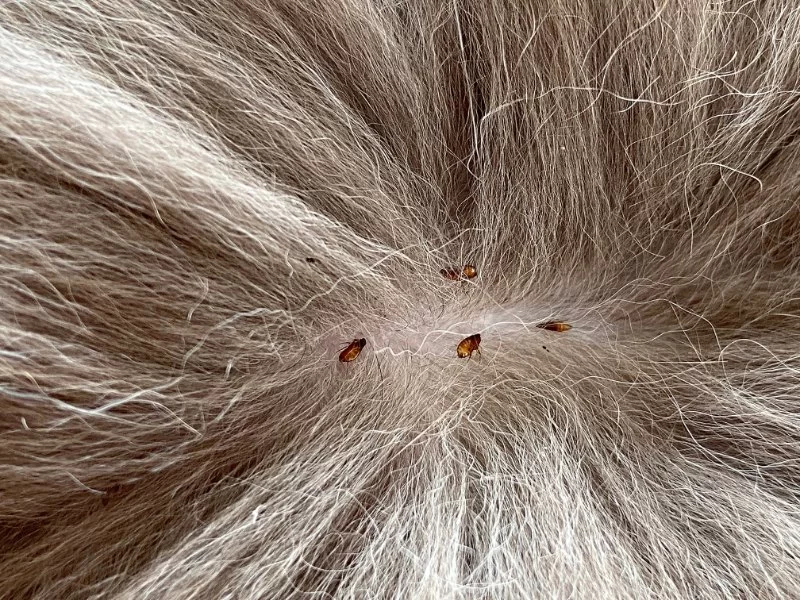What to Do If Your Cat Has Fleas: Treatment and Prevention in 2025
- - 1. Understanding Fleas and Their Impact on Your Cat
- - 2. Signs That Your Cat Has Fleas
- - 3. How to Treat Fleas on Your Cat
- - 4. Preventing Fleas in the Future
- - 5. When to Seek Professional Help for Flea Infestations
1. Understanding Fleas and Their Impact on Your Cat
Fleas are tiny, parasitic insects that can cause significant discomfort for your cat. These pests feed on your cat’s blood, leading to irritation, itching, and potential health issues. Flea infestations can also lead to flea anemia, especially in young or weakened cats. In severe cases, fleas can transmit diseases or parasites like tapeworms. It’s important to understand the impact of fleas and how to address an infestation effectively in 2025.
2. Signs That Your Cat Has Fleas
Recognizing flea infestations early is crucial for effective treatment. Here are some common signs that your cat might have fleas:
- Constant Scratching and Biting: Cats with fleas will often scratch or bite their fur in an attempt to alleviate the itching caused by the fleas.
- Flea Dirt: Flea dirt looks like small, dark specks of dirt on your cat's fur, which are actually flea droppings. To test if it’s flea dirt, place it on a damp paper towel—if it turns red, it’s flea dirt.
- Hair Loss: Excessive scratching and biting can cause hair loss, particularly around the neck and tail.
- Visible Fleas: You may see adult fleas moving around on your cat’s skin, particularly around the base of the tail.
3. How to Treat Fleas on Your Cat
Treating fleas on your cat requires a combination of approaches to eliminate the pests and prevent future infestations:
- Use Flea Medications: There are various flea treatments available, including topical treatments, oral medications, and flea collars. Consult your vet to choose the right product for your cat.
- Flea Shampoos: Bathing your cat with a flea shampoo can help kill fleas on contact. However, it’s often not enough on its own for long-term control.
- Flea Comb: Using a flea comb regularly can help remove adult fleas and flea dirt from your cat’s fur.
- Wash Bedding and Toys: Fleas can also live in your cat’s bedding, toys, and other areas they frequent. Wash these items regularly in hot water to kill fleas and eggs.
4. Preventing Fleas in the Future
Prevention is key to avoiding future flea infestations. Here are some steps you can take to keep fleas away from your cat:
- Regular Flea Treatments: Using preventative flea treatments on a monthly basis can help keep fleas at bay. This is especially important if your cat spends time outdoors.
- Keep Your Home Clean: Vacuum your home regularly, especially in areas where your cat likes to spend time. Wash your cat’s bedding often and treat your home with flea sprays or foggers if necessary.
- Avoiding Contact with Other Infested Animals: If you have other pets or outdoor animals that are flea-prone, make sure to regularly check and treat them for fleas as well.
5. When to Seek Professional Help for Flea Infestations
In most cases, you can manage fleas with over-the-counter treatments. However, there are times when professional help is necessary:
- Severe Infestation: If your cat’s flea problem is severe, causing excessive blood loss or discomfort, it’s important to seek the help of a vet who can recommend stronger treatments.
- Persistent Fleas: If flea treatments aren’t working or if your cat keeps getting fleas despite your efforts, a vet can help you find a more effective solution and provide additional advice on managing the infestation.
- Health Issues: Flea infestations can sometimes lead to other health problems like infections or allergic reactions. If your cat’s health is suffering, professional veterinary care is necessary.
Dealing with fleas on your cat in 2025 requires the right treatment and prevention strategies. With the proper steps and a little patience, you can keep your cat flea-free and comfortable. Don’t hesitate to seek professional help when needed, and always prioritize your cat’s well-being. For further assistance, consider consulting with veterinarians at Hidden Brook Veterinary to ensure the best care for your furry friend.











